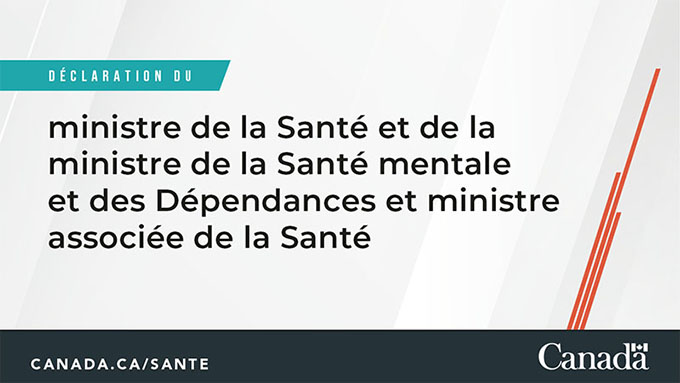November 16, 2023 | Ottawa, ON | Health Canada
The month of November is Lung Cancer Awareness Month. This is an opportunity to raise awareness about lung cancer and the steps we can take to prevent it and reduce the stigma surrounding this disease. Lung cancer is the leading cause of cancer death in Canada for both men and women. It is also the most commonly diagnosed cancer in Canada; nearly 30,000 people are diagnosed in the country each year.
Although smoking is the main cause of lung cancer, other factors such as air pollution and radon exposure may also play a role. By being aware of these risks, people can take preventive measures to reduce their risk of developing lung cancer and other chronic diseases.
Radon exposure is the leading cause of lung cancer in people who do not smoke or have not smoked. It is the cause of more than 3,200 deaths per year in Canada. Exposure to high levels of radon in indoor air increases the risk of developing lung cancer. To protect ourselves and our families, we should check our homes for radon using the available radon test kit on-linein some local shops as well as by the certified radon expert.
For people who smoke, quitting is one of the best things you can do for your lungs. When a person quits smoking, their risk of lung cancer decreases, and the sooner they quit, the greater the long-term benefits. Surprisingly, the health benefits can be felt as early as 20 minutes after the last cigarette.
The Canadian Tobacco Strategy is the current federal strategy for tobacco control in Canada. It is designed to help achieve the goal of reducing tobacco use in Canada to less than 5% by 2035. Since 2018, we have invested $66 million annually to help Canadians quit smoking or reduce the harm of their nicotine addiction, and to protect youth and people who do not use tobacco from the dangers of smoking and nicotine addiction.
The Government of Canada offers many resources to help people quit smoking. The campaign encourages adults who smoke to learn about the many friendly resources and supports that can help them quit smoking. The campaign also features inspirational stories of Canadians who have quit smoking. Anyone in Canada can also call the National Smokers’ Helpline toll-free, where trained specialists can help people create a plan, answer questions and direct people to programs and services in their area. This helpline can be reached by phone at 1-866-JARRETE (1-866-527-7383) or online at Livesansfumee.gc.ca/abandonment.
For more information and resources to help you quit smoking, visit Canada.ca/stop-smoking. If you need support for mental health or substance use issues, talk to a doctor and don’t hesitate to ask family and friends for help.
This Lung Cancer Awareness Month, we encourage all Canadians to adopt healthy lifestyles and support those affected by this disease.
The Honourable Mark Holland, PC, MP
The Honorable Ya’ara Saks, PC, MP

Award-winning entrepreneur. Baconaholic. Food advocate. Wannabe beer maven. Twitter ninja.






